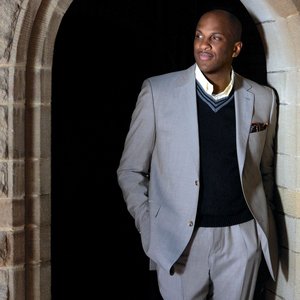-
Black Gospel Soundtracks카테고리 없음 2020. 3. 6. 01:43

- Soulful Gospel Instrumentals
- Black Gospel Soundtracks For Children
- Black Gospel Soundtracks Free Downloads
While many white musicians gravitated toward country, folk, and old-timey music to express their spirituality outside of traditional Christian hymns, Black Gospel music drew heavily upon the traditional spirituals that had been passed down from the days of slavery, picking up its more driving rhythmic emphasis from blues and early jazz. Composer and singer Thomas A. Dorsey crystallized the style in 1932 with his epochal 'Take My Hand, Precious Lord,' and went on to compose a great many songs that later became standards. When performed in the churches, the music was traditionally sung by a choir, with individual soloists sometimes taking the spotlight; this often happened in a form known as 'call and response,' in which either the choir or the soloist would repeat and/or answer the lyric which had just been sung by the other, with the soloist improvising embellishments of the melody for greater emphasis. As the music developed, these soloists became more and more virtuosic, performing with wild emotion (and, in the South, physicality) in order to properly express the spiritual ecstasy the music was meant to evoke. The music was quite egalitarian in terms of gender, as both male and female performers - Brother Joe May, Rev. James Cleveland, Mahalia Jackson, the Clara Ward Singers, etc.
gained wide renown among both black and white audiences. The small-group format was also prevalent, with major figures including the Five Blind Boys of Mississippi, the Soul Stirrers, the Swan Silvertones, and the Dixie Hummingbirds; in general, these groups placed a greater premium on smooth vocal harmonies, although some performances could approach the raucous energy (if not quite the huge sound) of a choir-with-soloist group.
Soulful Gospel Instrumentals

Black Gospel Soundtracks For Children
As the years progressed, black gospel and black popular music influenced and borrowed from one another, reflecting the gradual change of emphasis toward R&B; black gospel also had an enormous impact on the development of soul music, which directed gospel's spiritual intensity into more secular concerns, and included a great many performers whose musical skills were developed in the church. As a recognizable style unto itself, black gospel music largely ceased to develop around the 1970s; progressing racial attitudes had helped black popular music reach wider audiences (and become more lucrative) than ever before, and tastes had turned towards the earthy hedonism of funk and the highly arranged, sophisticated Philly soul sound. The former wasn't quite appropriate for worship, and it wasn't all that practical to duplicate the latter in church services.
Black Gospel Soundtracks Free Downloads
However, the traditional black gospel sound survived intact and was eventually augmented by contemporary gospel (an '80s/'90s variation strongly influenced by latter-day urban R&B); plus, singers like Whitney Houston continued to develop within its ranks.Black Gospel Artists Highlights.